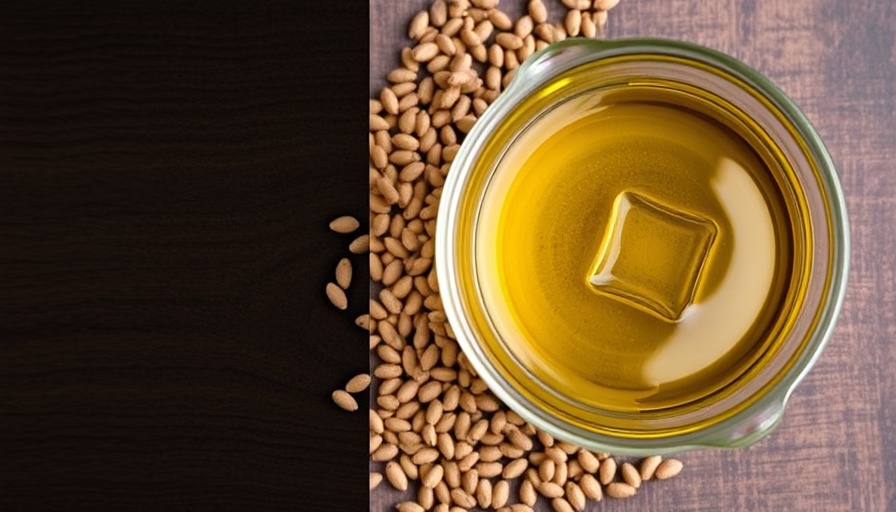
The Hidden Truth About Seed Oils: A Nutritional Dilemma
In recent years, seed oils have found their way into the hearts of home cooks and health enthusiasts alike. Marketed as a healthier alternative to traditional fats, these oils are omnipresent—from salad dressings to snack foods. However, the video titled Fed a Lie — The Truth About Seed Oils brings to light alarming revelations about their potential adverse health effects. This article aims to unravel the myth surrounding seed oils while offering evidence-based insights into healthier alternatives.
Understanding Seed Oils: What Are They?
Seed oils, which are made from the seeds of plants such as soybeans, canola, and corn, have gained popularity for their purported heart-healthy attributes. They are rich in polyunsaturated fats and have become a staple not only in homes but also in many restaurants. However, the process of extracting these oils often involves high heat and chemical solvents, which can compromise their nutritional integrity. This raises the question: how healthy are these seed oils, really?
The Disturbing Impact of Seed Oils on Health
According to the video, many studies suggest that seed oils might promote inflammation, which is a key contributor to chronic diseases such as heart disease, obesity, and even cancer. The omega-6 fatty acids prevalent in seed oils, while essential in moderation, can lead to an imbalance when consumed in excess, potentially increasing the risk of various health issues. This growing concern necessitates a re-evaluation of their role in our diets.
Alternatives to Seed Oils: Healthier Fats to Consider
If you're beginning to question your reliance on seed oils, there are a variety of healthier alternatives that you can incorporate into your diet. Options such as olive oil, coconut oil, and avocado oil are not only used in cooking but also provide significant health benefits. Olive oil, rich in monounsaturated fats, is known for its heart health-promoting properties, while coconut oil offers antimicrobial benefits. Avocado oil, lauded for its high smoke point, is incredibly versatile and packed with beneficial nutrients.
Breaking Down the Myths: What Do We Really Know?
Many people believe that seed oils are heart-healthy simply because they've been encouraged by mainstream wellness advocates. However, the video emphasizes that understanding the science behind these claims is crucial. A balanced approach to nutrition that includes whole foods and minimizes processed ingredients is the smarter path forward.
Future Trends in Dietary Fat Choices
As awareness of the potential downsides of consuming seed oils grows, we can expect shifts in consumer preferences. Emerging research may pave the way for innovations in food technology that prioritize healthier fat alternatives. Brands focusing on clean eating and transparency are likely to garner consumer loyalty, reshaping the marketplace and public perception of dietary fats.
What Each of Us Can Do Today
Rethinking your cooking fats can drastically change your health trajectory. Start by reading labels carefully in order to identify and avoid seed oils in packaged foods. Explore and experiment with alternative fats in your cooking to discover what you enjoy while boosting your nutrition. Your choices matter, and understanding the impact of what you consume is essential for your long-term health.
Real-Life Experiences: The Journey to Better Health Choices
People everywhere are forging paths to healthier eating, sharing their stories of overcoming obstacles like addiction to unhealthy oils. This community of health-conscious individuals reflects the natural human desire to feel good and live well. Their collective experiences can inspire others, making the journey toward better health less daunting.
In conclusion, we must question assumptions surrounding seed oils and educate ourselves with credible information. The video Fed a Lie — The Truth About Seed Oils shines a spotlight on necessary truths, reigniting the conversation about dietary fats. As we begin to engage more critically with the foods we eat, we empower ourselves to make meaningful changes for our health.
 Add Row
Add Row  Add
Add 




 Add Row
Add Row  Add
Add 

Write A Comment